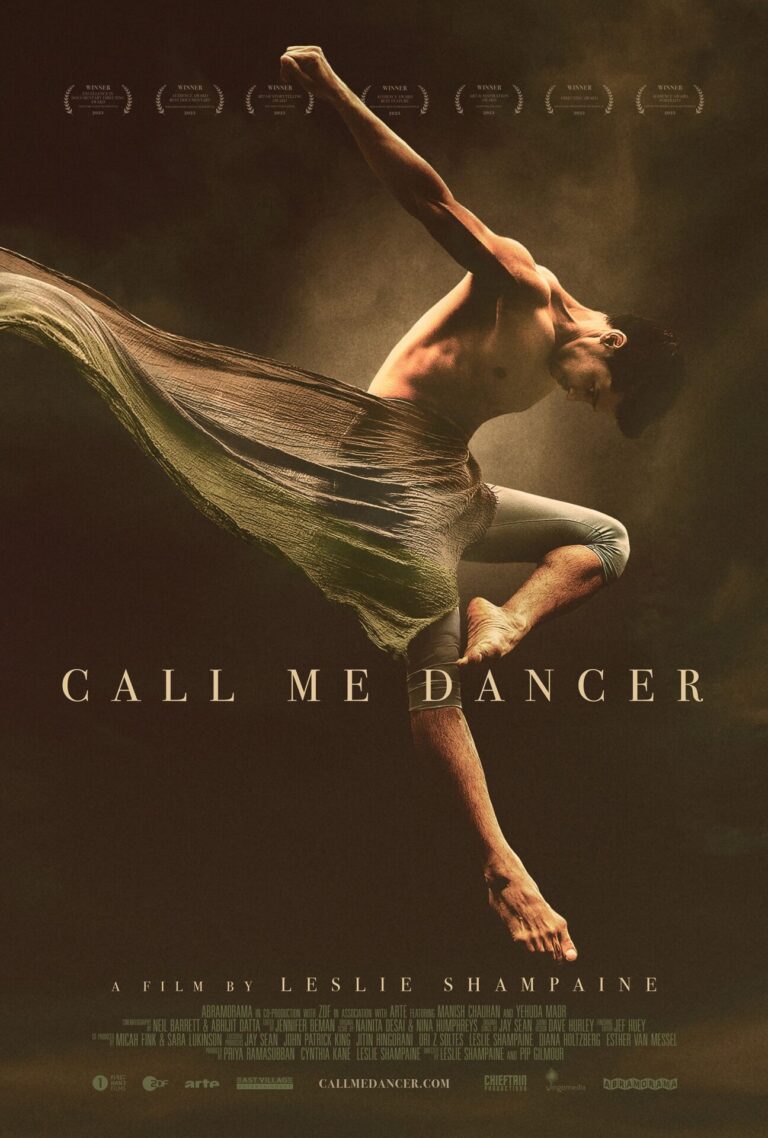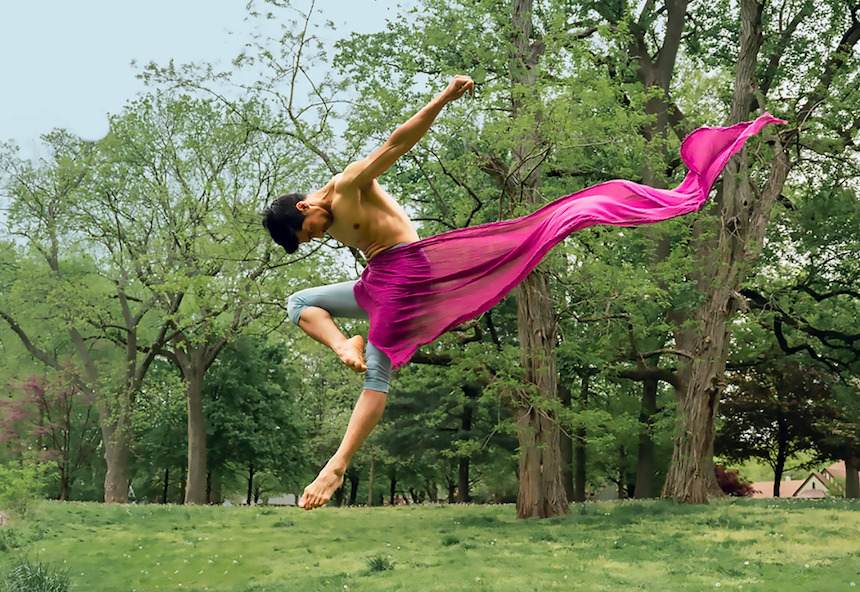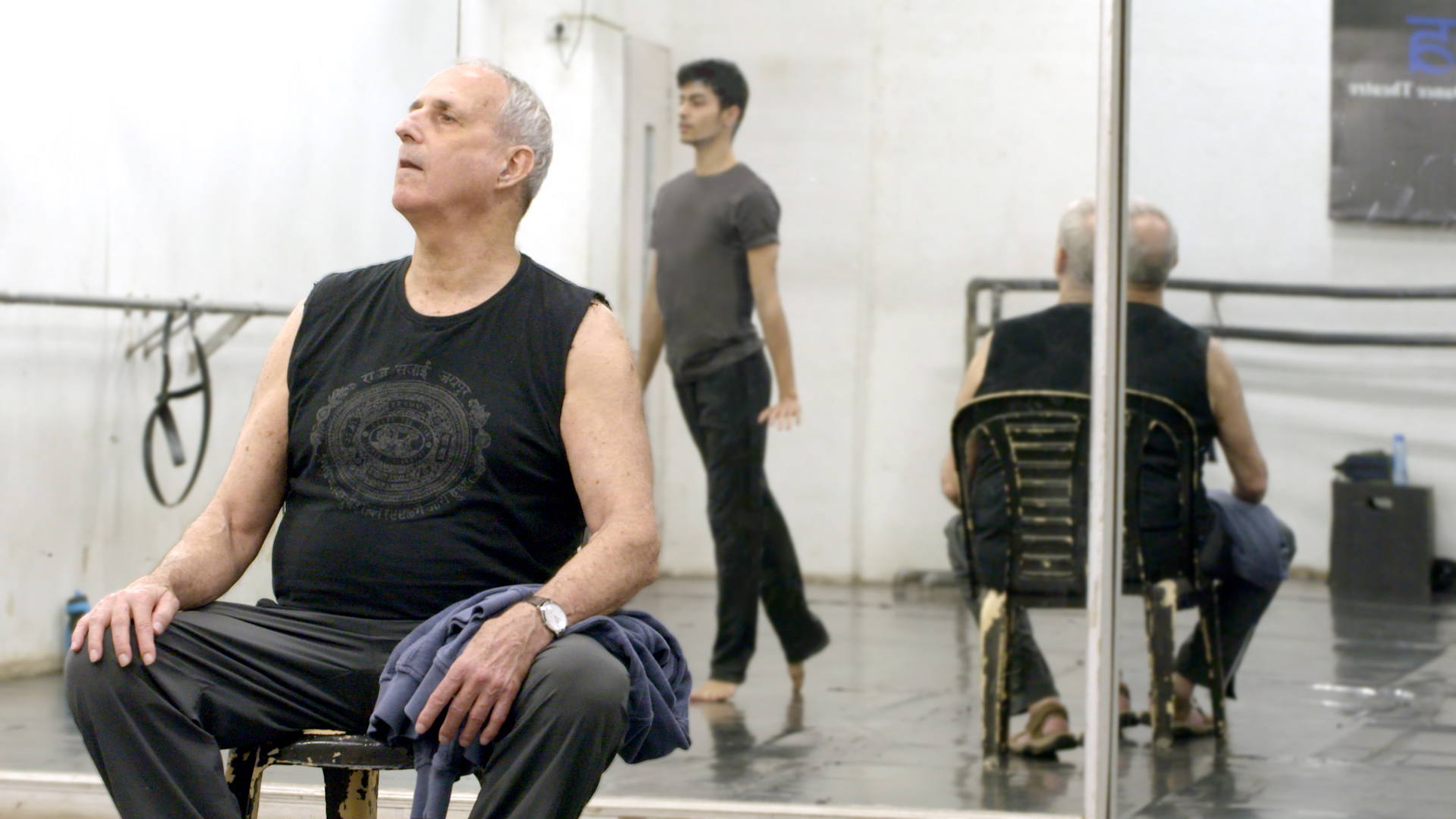
“In India people think there’s no future in dancing” this is how Manish introduces us to his story. He further adds how those who come from a humble background, like himself, consider dancing a hobby for rich people and not a profession that can allow a livelihood. The documentary Call Me Dancer, directed by Leslie Shampaine demonstrates how hard work and dedication can pay off to make dreams come true.
Call Me Dancer is a story of heartache, toil and hope. The motion picture not only unveils the struggle and pain of two aspiring dancers — one in particular — but also shines a light on the important figure of the mentor. Manish discovers his love for dancing “later” in time (in terms of the age cut-off of a dancer). He is street performer from Mumbai, who is self-taught and moves acrobatically, imitating the routines he sees on television, before he is accepted in The Danceworx Performing Arts Academy in Delhi. He drops out of business school and uses the tuition to pay for his classes. His hardworking parents have dedicated their lives earning money for their children’s education and fear Manish’s artistic endeavours will end up in failure.
As the young man of the household, the aspiring dancer, has financial responsibilities towards the retirement of his parents and his sister’s wedding. His wish to become a dancer is not a reassuring career choice. But the day Manish will walk into a ballet class held by Yehuda his life will change forever. This curmudgeonly seventy-five year old Israeli teacher — who was part of the Bat-Dor Dance Company — will take him and another talented student under his wing. Amir is younger and will manage to receive a full scholarship at the Royal Ballet in London and become known as the Indian Billy Elliot. Manish’s path will be more arduous — since he has reached his twenties — but will lead him to multiple experiences, that range from joining the Kibbutz Contemporary Dance Company and working on a Bollywood set. For the latter, Manish will act as himself in Sooni Taraporevala’s Yeh Ballet, whereas Julian Sands plays the role of Yehuda, training two gifted underprivileged Mumbai teens as they pursue their dancing dreams.

The beauty of Call Me Dancer is the transformational journey that osmotically occurs between two different generations. It isn’t only the older and more experienced dancer who helps his student improve and find his way through life. Also the burgeoning artist supports his mentor in finding peace of mind and a sense of family in a foreign country. This dynamic shows how life is an endless learning path.
The film further unveils the cultural influence that affects people’s aspirations. India’s perception of creative professions looms as a major challenge for aspiring artists. In fact, singer and songwriter Jay Sean executive produced Call Me Dancer because the story resonated with his own: as a British-Indian his parents wanted him to pursue medicine rather than his dream of becoming a singer, but he proved them wrong. Manish did the same, pirouetting past a shoulder surgery, the Covid lockdown in New York City and the prejudice towards his unconventional artistic journey. His perseverance led him to perform at The Kennedy Center in Washington D.C., obtain a position in a dance company and fulfil the economic expectations of his relatives.

Call Me Dancer beautifully presents the family of dance and how it transcends religion, nationality and age. All are united by the love and dedication towards this art form, that requires ceaseless discipline. It is very meaningful to have an insider’s look in this field: the director of the film, Leslie Shampaine, is a retired ballet dancer. She co-directed Call Me Dancer with her friend and colleague, seasoned documentarian Pip Gilmour, to present an unconventional angle to dance films. Usually these movies, whether they are fiction or documentaries, convey the difficulty of the profession. What Shampaine wanted to show was “the passion and inner joy that pushes dancers past the pain.” Her insider’s sensitivity and perspective succeed in this goal majestically.
Final Grade: B+

